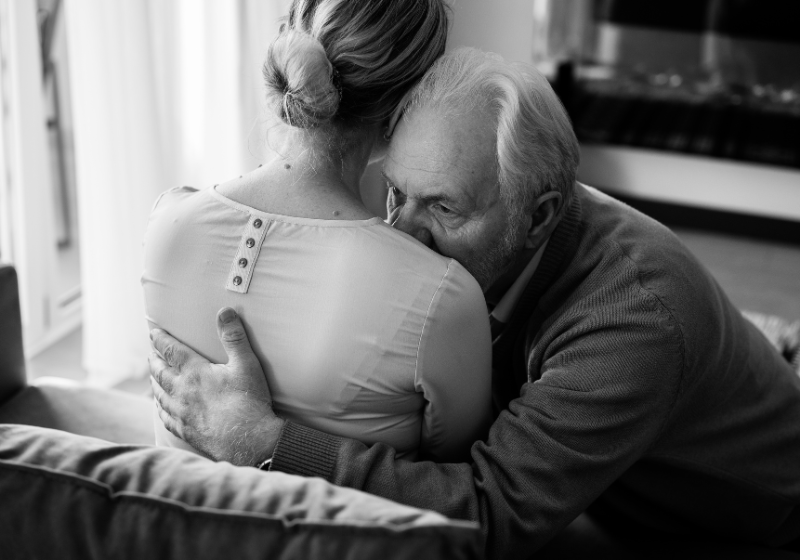The loss of a loved one is the most stressful event in our lives. As we all know, when the death of someone close to us takes place, we experience a range of emotions. Dealing with grief triggers feelings of denial, anger, guilt, shock, sadness, and despair, among others. A noted Swiss-American psychiatrist, Elisabeth Kubler-Ross, postulated the process that people experience after the loss of a loved one. These five stages are:
- denial: the difficult process of accepting the new reality, and attempting to minimize the disruption in our lives with this loss
- anger: the discomfort and hurt we feel can be expressed as anger, irritability, and verbal (and sometimes physical) aggressiveness
- bargaining: an effort to shift the reality of the loss, bargain away the loss in exchange for being free of the pain felt
- depression: feeling the loss on a level of deep, intense sadness, often in the form of retreat and isolation from others,
- acceptance: sadness may still be present, but the earlier emotions experienced have dissipated, such as the anger, denial, and depression
This model of Kubler-Ross does not perfectly explain the range of reactions to death. Importantly, nor do they always follow this pattern. There are many models that help to delineate the effects close, personal losses have on individuals. For more information, readers can read an excellent article by the National Cancer Institute. In addition, an article at Very Well Mind also has useful information about helping someone who is grieving.
This article is referenced in the latest publication, Better, Longer, and Happier: A Guide to Aging with Purpose and Positivity.


